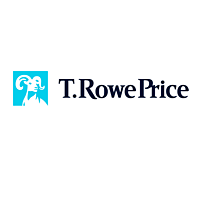China regulation: Opportunity may lie in the midst of a stock sell-off
The situation is still evolving with regard to China’s new regulations for the after‑school tutoring (AST) sector and the subsequent sell‑off in platform education stocks. Our team of experts is currently assessing the likely full impact. In the meantime, we wanted to share some preliminary thoughts.
Major regulation changes are not uncommon in China
While this regulatory cycle may appear more severe compared with previous cycles, it is important to note that we have been here before. China’s stock market has experienced heightened regulatory tensions on a number of occasions during the past decade (in 2012, 2015, and 2018). Yet the strategic direction of travel for policy is clear and has not changed; our team does not think that the end results will be very different this time.
President Xi Jinping’s social policies have focused on three important pillars:
- anticorruption,
- environmental protection, and
- social equality.
The
latest regulatory changes in the education system are targeted toward the
government’s broad goal of improving social equality. However, while the
direction of the new education regulations was consistent with expectations,
the enforcement mechanism is much tougher than either we or the market had expected.
While government policy on this occasion is only targeted toward AST, we are assessing the impact this may have on the whole of the education sector and what the implications may be for the profitability of other listed education companies outside the AST market.
Has the regulatory environment become more difficult for investors?
There have also been concerns that the regulatory environment in China has generally become more difficult and less investor-friendly. The team’s perspective here is that the Chinese government has a number of long‑term goals and it has long been transparent about its policy priorities—in that sense, nothing has changed. So the big surprise this week was the way in which the policy was implemented rather than the direction of policy, which has not changed.
To achieve greater social equality, the Chinese authorities have openly stated that they would target the education, health care, and property sectors. In that sense, the education regulator is continuing to implement its long-term policy objectives. While the recently announced education sector measures surprised us with their extent, we knew about the policy orientation.
Should we be expecting more regulatory changes?
We are probably nearing the end of the current cycle. This is what the team is assessing at the moment in an effort to identify winners and losers. We are keeping a close eye on the developments in the internet sector. Here we believe that the Chinese government has no intention of derailing the future growth of this vital sector. However, the government does wish to create a more level playing field and bring a competitive balance by ensuring fair competition in a sector currently dominated by a handful of massive platforms.
The Chinese government wants to see a better balance of power.
We believe the government aims to create a more balanced operating environment between the platforms, their users, their delivery services, and their employees—basically, a more balanced ecosystem. By bringing more balance to the internet ecosystem, the government aims to foster innovation and broader growth in the sector. All countries are facing a new digital economy, and the Chinese government is seeking to regulate monopolistic power in its digital economy.
Similarly, there is talk of internet giants opening up their own online education platforms. In our view, opening up the digital infrastructure is likely to facilitate the development of the entire ecosystem and avoid “empire building.”
On the internet platforms, we think it is too early to conclude that the major platforms will definitely emerge as losers. It will come down to how each company works to comply with new regulations and maybe even find innovative ways to capitalize on the new environment. We will be watching any further regulatory announcements that may come in this space, as these may present attractive buying opportunities. Some of the big platforms may find themselves on the right side of change and be in the winners' bucket.
What about health care and property?
Other areas of potential concern are health care and property—two sectors that are important in meeting the government’s social equality goals. The health care sector has already experienced significant regulatory change designed to tackle the affordability of and access to health care. Within this sector, we think there are potential winners to be found in those companies with a strong focus on innovation. Within property, the authorities aim to make it more affordable. This policy has been in place for the last five to six years already and has been capping the profitability/margins of lower‑quality players. Our preference in this space is toward property management companies as their business model is unlikely to be impacted by the government’s measures to cap property prices. In fact, they serve a social goal too (e.g., waste management).
Key Insights
- The situation is still evolving with regard to China’s new regulations for the education sector that has sparked a sell‑off. However, China’s stock market has experienced heightened regulatory tensions on a number of occasions during the past decade.
- Chinese authorities have openly stated that they would target the education, health care, and property sectors to achieve greater equality, and the direction of policy has not changed.
- Our team does not think that the end results will be very different this time, though we are concerned that the whole of the education sector may be subject to regulatory overhang. Assessing the winners and losers will be where we focus our efforts.
Invest with confidence
T. Rowe Price focuses on delivering investment management excellence that investors can rely on—now and over the long term. Hit the 'follow' below for more of our investment insights.
1 topic
1 contributor mentioned

